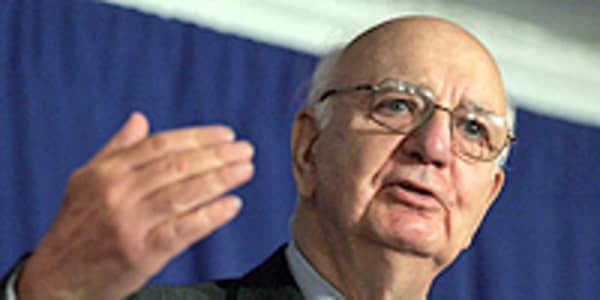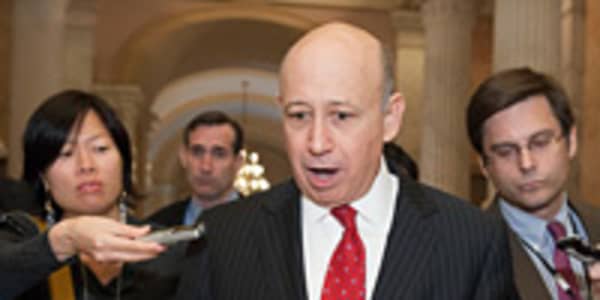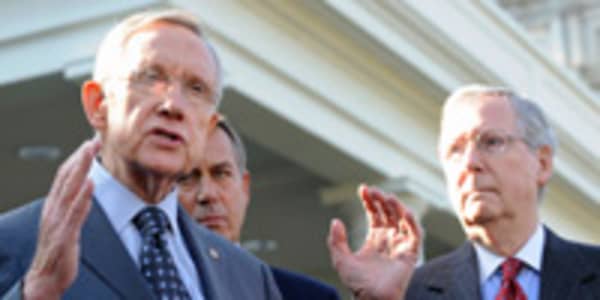President Barack Obama and Mitt Romney remain locked in a close race for the White House, but Obama has improved his standing in the swing states both candidates are targeting, according to a new NBC News/Wall Street Journal poll.
The poll shows leading by 47 percent to 44 percent nationally, virtually unchanged from his margin in May. But among Americans in a dozen battleground states, the Democratic incumbent holds a more substantial 8-point edge, reflecting an uptick in those states since earlier this year.
“It’s been a good month electorally” for Obama, said Democratic pollster Peter Hart, who conducts the NBC/WSJ survey with his Republican counterpart Bill McInturff. The poll of 1,000 adults, conducted June 20-24, carries a margin for error of 3.1%.
The poll suggests that events often-characterized as stumbles for the White House, such as Obama’s statement at a news conference that the private sector is “doing fine” economically, have had less impact that the targeted advertising that the president and his allies have been airing in swing states attacking Romney for his work at Bain Capital, among other things. Residents of swing states, for instance, view the presumptive Republican presidential candidate’s business background negatively rather than positively by a 33 percent to 18 percent margin. Nationally, negative views hold a narrower 28 percent to 23 percent edge.
At the same time, residents of swing states say Obama’s economic policies have helped rather than hurt by 38 percent to 29 percent. Among Americans overall, 33 percent say the president’s policies have hurt, while 32 percent say they’ve helped.
Obama has also improved his standing among Americans showing the highest interest in the election, a key factor that foreshadows their propensity to vote in November. The two candidates deadlock at 48 percent among high-interest voters; in May, Romney led among those voters by 3 points. For the first time this year, Democrats show as much interest in the election as Republicans.
Yet Romney retains some advantages among key constituencies. Among Americans age 50 and older, a key Romney target, fully 77 percent express high interest; among those under 35, a key Obama group, just 46 percent do.
Similarly, 69 percent of whites, among whom Romney holds a significant lead, express high interest. But only 52 percent of Hispanics do. Obama is counting on dominating this fast-growing segment of the electorate in such states as Colorado and Nevada. In favor of Obama, the first African-American president, fully 74 percent of African-Americans express high interest in the election.
The imperative to boost turnout among young voters and Hispanics helps explain Obama’s recent moves to endorse gay marriageand stop deporting certain younger Latinos. “It’s easy to see what’s driving presidential policy at this point,” said McInturff.
On handling critical issues, Democrats continue to hold double-digit advantages over Republicans in public opinion on helping the middle class, Social Security and Medicare, and health care — a hot topic this week as the Supreme Court prepares to rule on the constitutionality of Obama’s health care law. Yet Republicans enjoy similar margins on reducing the deficit and controlling government spending.
The economy remains the top issue overall. Some 60 percent say current conditions reflect a situation Obama inherited. Yet a near identical 61 percent continue to say the nation has gotten “off on the wrong track.” And by 49 percent to 43 percent, Americans say recent news has made them less optimistic rather than more about the economy.
- By CNBC's John Harwood
@JohnJHarwood





